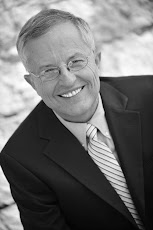With Baby Boomers starting this year to move into retirement, the topic seems to be on the minds of many. Few, however, realize that retirement is truly a modern phenomenon.
It's also one from which religious leaders have often run. No group has resisted the modern concept of retirement more than the clergy has.
Just 40 years ago Vatican Council II moved the Roman Catholic clergy toward this major lifestyle change. Not only did Catholic cardinals over age 75 lose their votes for the next pope, VCII set the stage for the retirement of Catholic pastors over age 75, too. Before that Catholic priests—as well as other clergy—thought they had lifelong locks on their jobs.
Seventy-five was also a compromise between the modern trend toward age 65 and the priests' view of "never, no never".
As a newspaper reporter in the 1970s as the retirement trend was unfolding, I encountered many tricky situations involving the forced retirement of Catholic pastors. In one case the poor fellow was so angry at the pope, his local bishop, and the church's hierarchy for putting him out to pasture that he spewed venom all over me just because I happened to be standing there with a notebook in my hand. I didn't take it personally, because he and I both knew I had nothing to do with the life-altering decision. I was just merely a scribe trying to report the event and the pastor's curious negative reaction to it.
Even with the concept of retirement more embraced among Protestant churches, the thought of retirement still sends far too many church leaders into a blue funk or a counter-defense trying to ward it off as long as possible.
During my years on the religion beat at the Houston Chronicle I wrote more than my fair share of retirement stories about aging Houston clergy from all denominations and religions. I eventually developed my own little mind-game called "Guess how long this guy's gonna live?" During the interview, I would ask strategic questions designed to elicit from the retiring church leader how well he had planned for retirement. I wasn't checking on finances! I wanted to know how the clergyman pictured life without his being in the limelight of leading a church or a religious institution.
The longer the church leader waited to retire, the more he clung to his image of himself as a "church or religious leader" and the less he had planned emotionally for the reality, the higher I scored him for "likely to die soon".
Conversely, pastors and other church officials who seemed eager to shed their clergy robes, who looked forward to developing new hobbies and interests, and who seemed to have a zest for living and not just filling a church role scored low on my "likely-to-die soon" scale.
I often was amazed how my little scoring game was right on target.
I remember one aging United Methodist leader who twisted and manipulated every church law on the books to stay active as a church leader as long as he could. Finally trapped in the rule-book corner at age 73, he reluctantly agreed to step aside. What were his plans? "Take a long vacation and then decide what I'm going to do with the rest of my life." What did he plan to do in retirement? "I haven't planned anything yet."
I left the interview at the Methodist Building planning to file my notes on this clergyman where I could get to them quickly. No, he didn't tell me of any secret illnesses.
And yes, I did need those notes within six months of our interview to write his obituary.
I'm no psychologist--only an observer of religious life in America. I don't know if other professions face the same degree of attachment to their careers as members of the clergy do. But I do believe firmly that over-identification with the ministerial role has a tendency to kill people shortly after they officially "retire".
With so many Baby Boomer pastors and church leaders on the threshold of this major life transition, seeing how these folks approach this issue will be highly interesting.






No comments:
Post a Comment